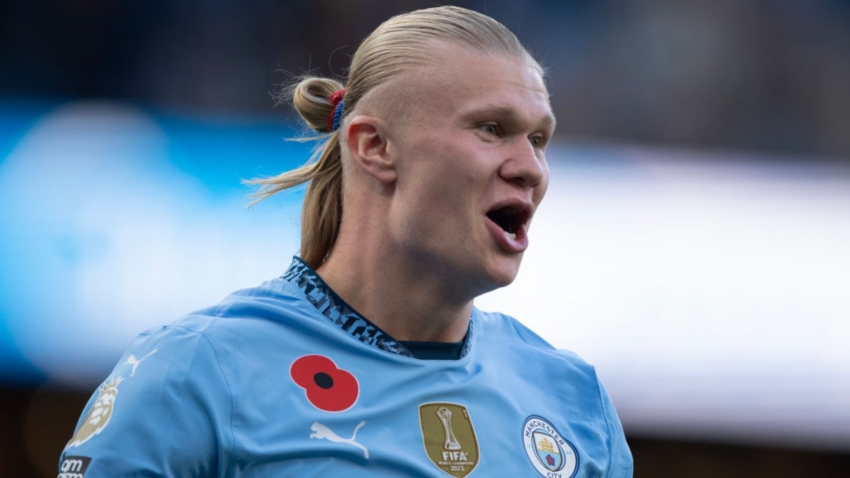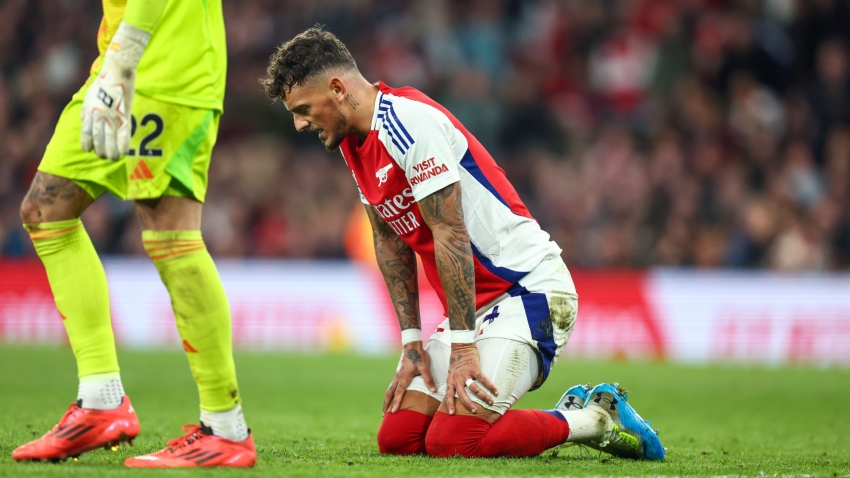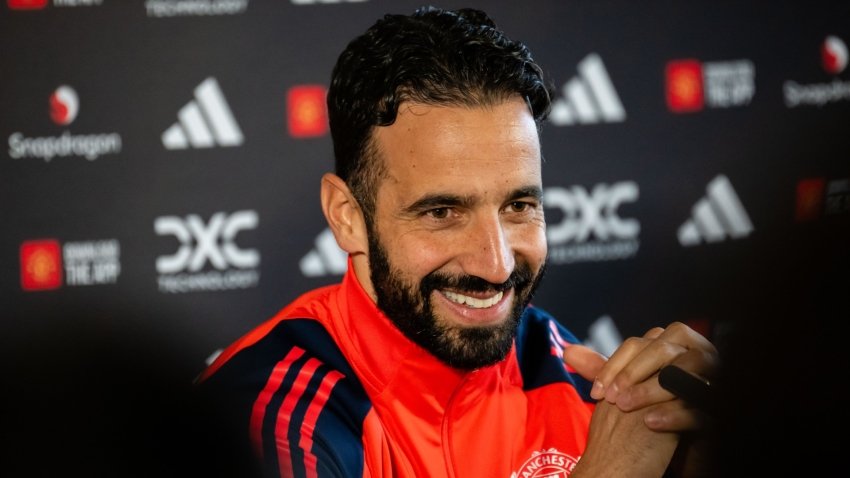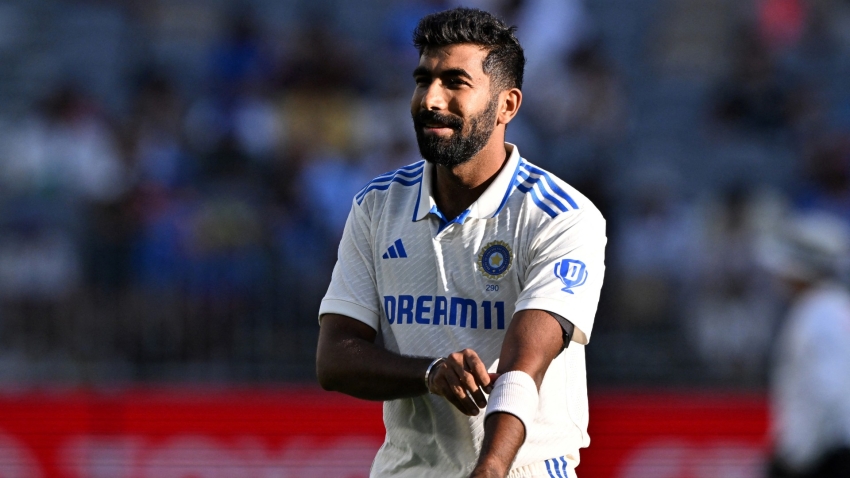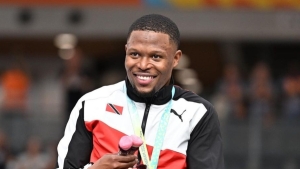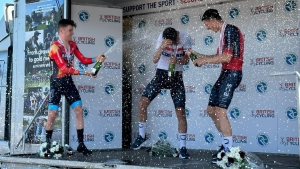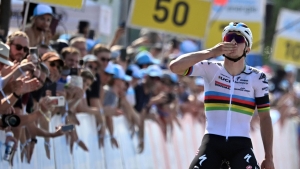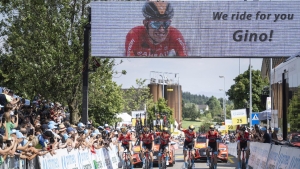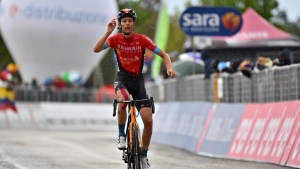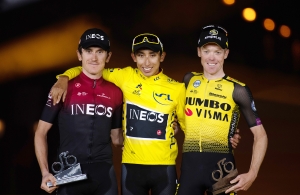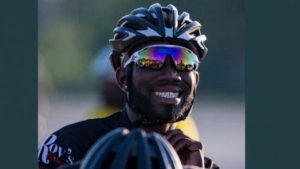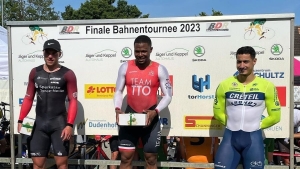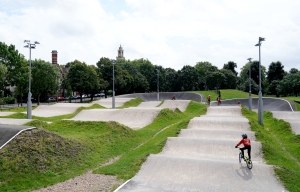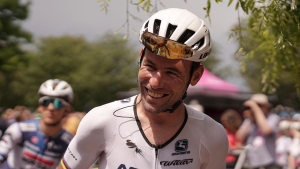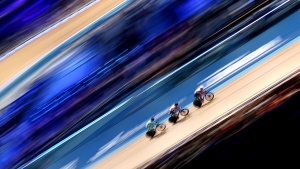Tom Pidcock is reluctant to call it a target but the opportunity to take the yellow jersey on the opening weekend of this year’s Tour de France has not escaped his notice.
The 23-year-old will race his second Tour this July, and said his goal is to do better than he did on debut last summer.
That might seem a lofty ambition given how Pidcock stormed to a stunning solo stage victory on the Alpe d’Huez, the descending skills with which he escaped his breakaway companions still talked of with awe.
But it would get even more attention if the Ineos Grenadiers rider enjoyed a spell in yellow, and a lumpy opening stage in the Basque Country offers a rider of Pidcock’s talents a chance.
“I think it is (an opportunity), yeah,” he told the PA news agency. “It’s a possibility and something that I am aware is a possibility. I think the first stage of the Tour is one that can be treated like a one-day classic, it’s going to be a super-hard day.”
When told that sounds non-committal, Pidcock quickly adds: “I’m just playing it down.”
Pidcock, who proved his one-day credentials at Strade Bianche in March, is far from alone in eyeing that opening stage, but he has other goals in July too.
He wants to show greater consistency in the general classification, and also to win a stage from the main bunch rather than a break.
“Last year I was going to the Tour two months after being ill in the spring and then getting Covid, it was not the perfect lead in,” he said. “I think this year I’m stronger and I can do better, basically.”
Pidcock is certainly riding high on the back of his recent spell on the mountain bike.
The Olympic champion took two victories from the World Cup round in Novo Mesto, first storming from last to first to win a short track race he only learned he was riding with a couple of hours’ notice, then recovering from a lap-five crash to win the cross-country race.
View this post on Instagram
A post shared by INEOS Grenadiers (@ineosgrenadiers)
It came after he finished second in Liege-Bastogne-Liege and third in the Amstel Gold Race at the end of April.
The run of form is affirmation for the work Pidcock did in the winter, when he chose not to defend his cyclo-cross world title but instead focus on conditioning.
Although a crash at Tirreno-Adriatico in late March punched a hole in some of his ambitions, the core fitness remains.
“Definitely I feel I’m a bit more robust and certainly at a higher level and I have been for longer and I think that’s partly from the extra time spent building a base preparing,” he said. “I think that’s only going to carry into the rest of the season.”
Throughout his young career to date, the Yorkshireman has juggled the demands of road, mountain bike and cross, but always knew there would come a time when something had to give. This season has shown how that might look.
“I think if I want to achieve the goals I do on the road, certainly there are going to have to be sacrifices in other disciplines,” he said. “But that doesn’t mean they don’t contribute and help with those ambitions.”
There are likely to be sacrifices too at August’s World Championships in Scotland, where the first combined multi-discipline championships is creating dilemmas for several athletes given the schedule clashes.
Pidcock plans to race his mountain bike, so is strongly leading towards skipping the road race which comes first and could come at a cost.
“I don’t want to do both and go home with nothing,” he said. “I’d want to ride the road race because it’s a home race and it will be a super nice experience and I think the worlds is a very special particular race where you never know what will happen.
“It wouldn’t be a bad thing to ride, I want to ride, but would it be the best thing? I don’t know.”
:: Tom Pidcock is a Red Bull athlete. Watch him appear in ‘Race Tapes‘, the new Red Bull series that delves into the lives of the world’s leading riders across all disciplines.









